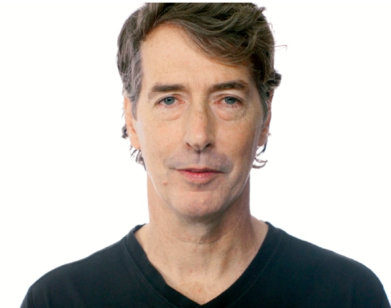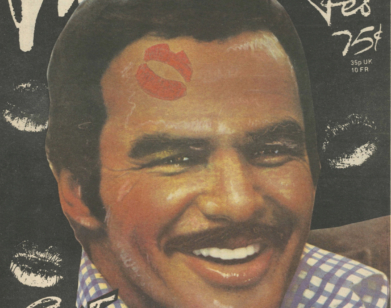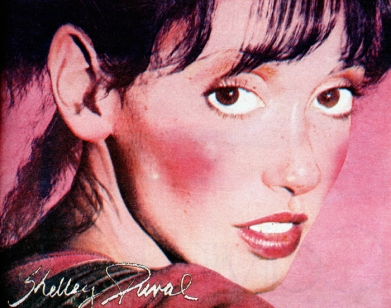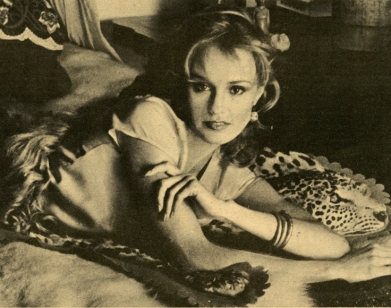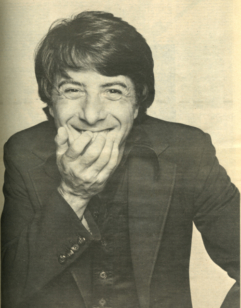Bette Midler’s Whole Life Story!
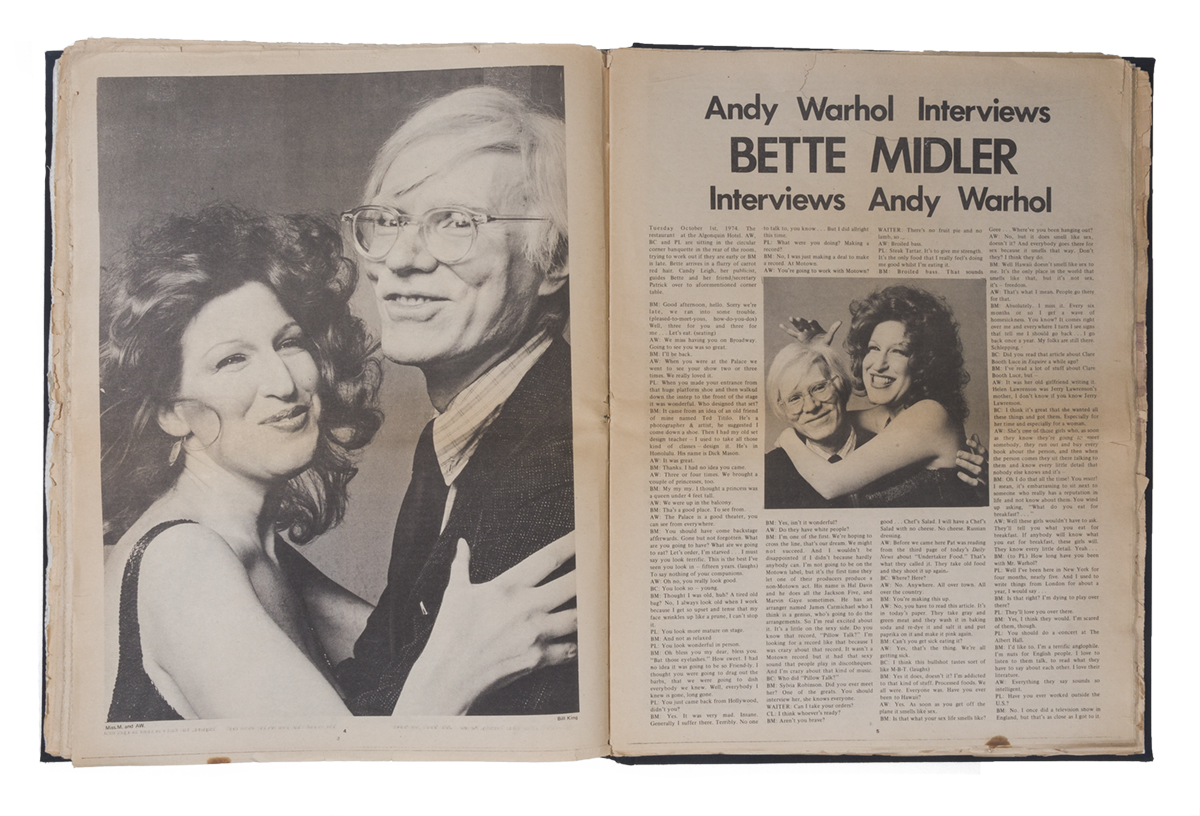
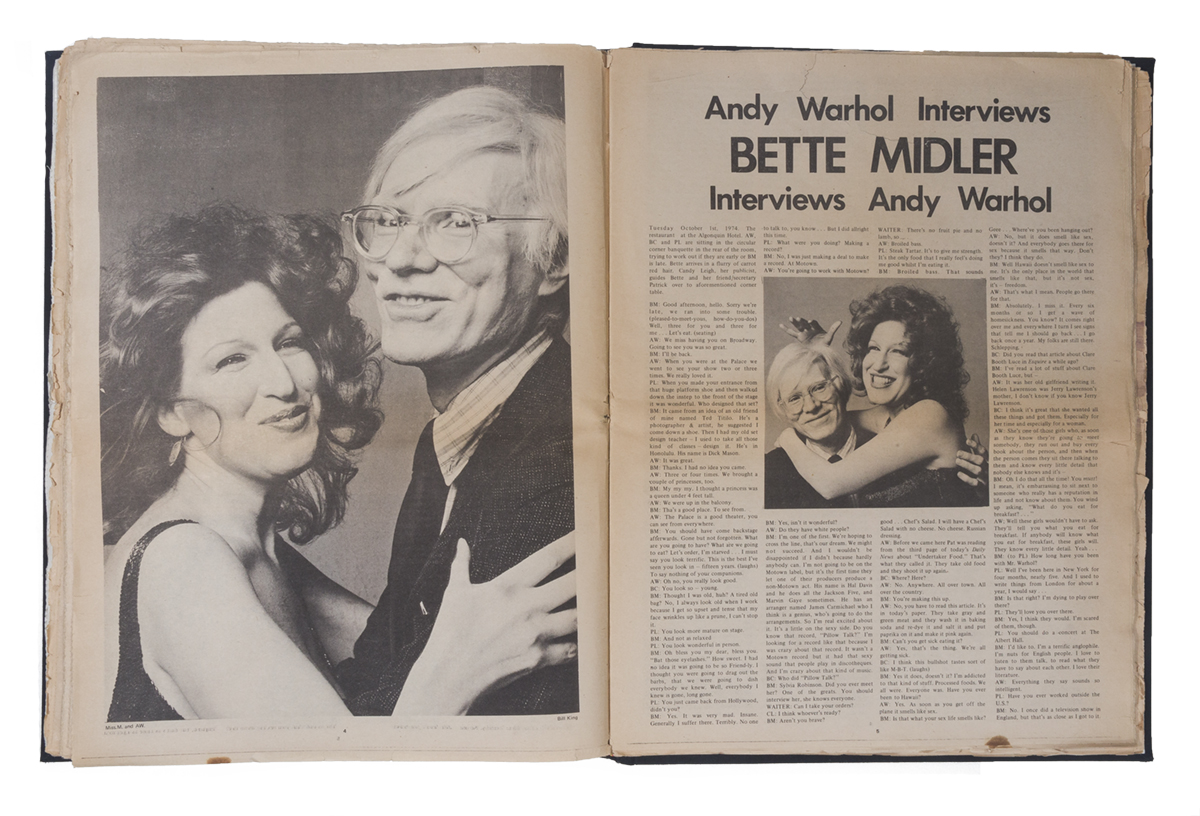
This story is part of a collection celebrating the best—and wildest—Warhol conversations from the Interview archives.
The restaurant at the Algonquin Hotel, Andy Warhol and Bob Colacello are sitting at the circular corner banquette in the rear of the room, trying to work out if they are early or if Bette Midler is late. Bette arrives in a flurry of carrot red hair. Candy Leigh, her publicist, guides her over to the aforementioned corner table where Bette tells us her whole life story and reminds us that there is always a need for giggles.
———
LISA ROBINSON: I get the feeling whenever I see you perform that something very incredible and different is happening…
BETTE MIDLER: Well, it’s different all right…
ROBINSON: How did you come to leave Hawaii and get into all of this?
MIDLER: Well, I’ve been into it in one way or another most of my life. I always wanted to be a performer, I didn’t know exactly what kind of performer, all I knew was there were certain things that I liked. I liked movies a whole lot, and I loved music. I was brought up on rock-‘n’-roll—actually, even before rock-‘n’-roll came to Hawaii I was into lots of different kinds of music. It was sort of funny because I couldn’t get interested in anything else—I tried and tried but I couldn’t get into science…or mathematics, I just cut myself off from anything else there was to get interested in. So I came to New York because I had to…I just had to. Now I’m here and I just have to get away! …I just have to get out…I have to find a way to get out of here!
ROBINSON: Forever or just for a while?
MIDLER: I’m not sure…
ROBINSON: Don’t you need the energy from New York?
MIDLER: I’m not sure. Music is probably the only place I get energy from anymore. Music and maybe watching a really tremendous performer—watching a terrific performer like Jagger or watching a great movie. I see a lot of terrific movies on TV but I don’t see so many in the theaters.
ROBINSON: Did you see Gilda last week?
MIDLER: Of course, I saw it for about the fifth time…she was breathtaking. She was so gorgeous… A lot of those women were breathtaking. Dolores Del Rio would make you gasp. Dolores Del Rio when she was young—I couldn’t believe that such a creature actually existed.
ROBINSON: Where did that drive to come here come from—I mean to actually get it together to do it. A lot of people love music and movies and don’t want to perform…
MIDLER: I don’t know how to say it. There isn’t a word for it that’s nice enough. What I have in me…well, it’s not hard, and it’s not cold, and it’s not fierce ambition, that’s not what it is. It’s a drive, but it’s not a drive…it’s being driven, it’s something I have no control over. It’s something pushing me, I’m not pushing myself.
ROBINSON: Did you look around and say one day I’ll be a star and own this town?!
MIDLER: Oh no—it wasn’t like that. I had no idea of being a star, all I knew when I came to New York in 1965 was that I wanted to be a great actress, I wanted to work as an actress. So I thought the way I would be a great actress was to sing and dance first. Lay a foundation—get my foot in the door, and then undoubtedly, of course, I would be offered great roles as soon as I grew up enough to handle them.
ROBINSON: Had you been singing?
MIDLER: Always. I hadn’t had any training then—now I work a lot on all of that, I began to get scared when I sang a lot and lost my voice a lot—so I’ve been working with David Collier for a while now who is great—but then I had nothing. I read plays a lot, I really loved the theater—the whole idea of the theater. Theater now is a whole different thing. Well, I thought I would sing and dance my way to fame and glory. I started out at La Mama, in a play of Tom Eyen’s called Miss Nefertiti Regrets. It was a very strange little musical comedy, but it was very musical and very funny. There were a lot of people who were doing exciting things then—Vaccarro and Charles Ludlam, some were more outrageous than others. As a matter of fact I got a great deal of my early inspiration from Charles Ludlam…the first thing I ever saw him do was Turds in Hell, which blew me away. It was incredible, it was the most incredible piece of theater I had ever seen. And there was this chick in the show named Black Eyed Susan—did you ever see her?—she was terrific, she really inspired me. So there I was in Miss Nefertiti Regrets, and it did well so Ellen Steward revived it a few months later, and Tom gave me the role of Miss Nefertiti. I wore a little blond wig…bikini…a pair of high heels, I had the best time. That was my first theater venture. So in between the Miss Nefertiti thing and some children’s shows I was doing for Tom Eyen I auditioned for a whole bunch of Broadway shows, and one of them was Fiddler. In those days I was stagestruck—I was actually stagestruck, and I had to get on the Broadway Stage. I thought everything would be all right once I did. Eventually I got into Fiddler as a chorus girl after about a whole year of auditioning on and off, then they let me go and they called me back for the part of one of the daughters, which I stayed with for three years. That subsequently led to a heavy bout of disenchantment. A very heavy bout. Ohhh…I wrestled with the angel of disenchantment! I grew up. I just grew up.
ROBINSON: What was it like to go there every night for three years?
MIDLER: I was really good for about two years, because I had this little thing in my head that wouldn’t let me not be on. And I would go out there and for two years—every night—I would be on. And the third year, however, I came to a screeching halt! There I was in the third year, working for the same money I had during the first year, breaking my ass, I was miserable because I couldn’t get into my agent’s offices. And when they would send me out for auditions the people wouldn’t like the way I looked, or the way I sounded—I couldn’t make them understand that there was anything there. The end of my second year with Fiddler I said, “This is not the way to do it. This is living? You call this living?” I didn’t call it living…I had a friend in the show named Marta Heflin, she’s a good girl, and a good performer too—and she would go down to Hilly’s after the show each night and sing out all her frustrations. And I said, “Well, honey I got a lot of frustrations to get out too,” so I went down there one night and I got up in front of this little audience and I sang. The first two songs were okay—they weren’t anything special, but the third song—something just happened to me—something happened to my head and my body and it was just the most wonderful sensation I’d been through. It wasn’t like me singing—it was something else…
ROBINSON: What was the song?
MIDLER: It was “God Bless The Child,” which I don’t sing, I never sing it. I sang it once and that was all because it frightened me so—it really freaked me out. I was screaming at the end of it, the song had a life of its own and the song imposed itself on me and I didn’t even know what was going on. I was just this instrument for what was going on. Bizaaaaaare… So I decided that was a nice change! Well, I’ll do that for awhile… So I did. And I had always loved blues, and rhythm and blues and torch songs, sad songs. Also at that time of my life I was very down, I couldn’t get up for love or money, so that’s what I sang—’20s and ’30s torch songs…The more I sang them the better I liked them, and the more I wanted to sing. So I started doing research and finding new songs to sing. Suddenly it took on a whole intellectual bent, I was running around to the library and collecting records and all of a sudden I had this whole new life outside of the theater. Once I had made up my mind that this was what I wanted to do it didn’t take me any time at all to decide well…whew. ‘Scuse me now, and I’ll do my little number. And I’ve been doing it ever since.
ROBINSON: Were you going to Hilly’s every night?
MIDLER: I went to Hilly’s, and I went to the Improv, I didn’t know where else to go…I didn’t have an agent or a manager, I did the whole thing myself. It was funny because actually I’m a very timid person, very shy really. And I’m terrified to go places by myself. There were so many places I wanted to go to that I couldn’t…like I would go to The Scene and I would always hide…hiding, way in the background. I was always frightened, I didn’t want to know them, and I didn’t want them to know me. I just wanted to walk in and listen to the music. So I would go to all these places but always very secretly and timidly, but it was great fun. I would just do the number that I wasn’t afraid to do, and that consisted of the showcase circuit because that was easy.
ROBINSON: But you still had to get up in front of people…
MIDLER: But it wasn’t the same thing. To get up in front of the audience at The Scene, that would have been hard for me. I would have been really scared, because at that place, everyone was attitudes. I mean it was attitudes forever, and I can’t attitude. I just can’t do it, I’m a Sagittarius, and very blunt, and I can’t put attitudes on. I can see when someone else is doing it, and if there was someone watching me do it I would be terrifically embarrassed.
ROBINSON: How did you start performing at the Baths?
MIDLER: I studied acting at the HB Studios with a man named Robert Elston and through him I eventually got this offer to perform there—it was a weekend gig, and it was wonderful. It was wonderful. I think it was about…two years ago. There had only been one act there before me, Rosalie Marks and her husband Lowell, folk singers, and then there was me. And we did real well, and you know, when you have a steady job you’re more inspired to broaden yourself. That’s when I started doing most of my broadening…as it were.
ROBINSON: What do you mean by broadening?
MIDLER: Well, it was music and comedy too—talking to the audience. I never used to talk to the audience until I got to the Baths. And honey, if you don’t talk to them, that’s the end. So my friend Bill Hennessey and I would get together and write all this stuff that we could talk about…and the whole thing changed when I started working at the Baths from a fairly negative, bluesy down trip—to a sort of semi-up trip. Which was unusual for me because I was a fairly negative person, I wasn’t your jolly laugh-a-minute girl at all. At the Baths I really had to entertain. So the more laughs I got, the more fun we had, the more money we made, the more I would be able to pay the piano player, and the happier we all were. It got to be that I was an attraction, people would come to see me.
ROBINSON: Did your style begin to change a lot?
MIDLER: Oh yes. Well, I was always in drag. I had a whole other idea of what people should look like…I was always dressed, I was dressing when I was down at Hilly’s. I would put my clothes on after Fiddler and I would get on the subway with my long velvet dresses…high heels…they thought I was crazy. They still think I’m crazy… At the Baths I got into a ’40s thing, and showing off the skin…it was fun. They boys from the Baths were the start—they were really the beginning of my career, and I’ll say that from now ’til the day I die, because they were the ones to give me the initial push. Fortunately they loved me enough not to care where I play, and they are still the foundation of my audience. They’re very loyal, and I would never give them up—they’re a great audience. The thing is—it does seem to be spreading now, and that’s great too, because you see all kinds of people in the audience. That’s really a turn-on to see all those people being different form one another and getting along…and not see them spitting at each other, even if it’s for an hour and a half or so…that’s really nice.
ROBINSON: How did you get started doing Johnny Carson shows?
MIDLER: Well, I had been working at the Baths and by that time I had a manager and he set me up for an audition with Carson. It was incredible, I got out of a cab on the way to the audition and I ripped my dress. Fortunately I was wearing underwear…one of the few times I was wearing underwear…and it was ripped all the way, right on the ass. The whole skirt was falling off, so I found a paper clip and I put the dress together. Then I said…what is this—if they don’t like the way you sound they won’t buy you anyway, ripped dress or no ripped dress, ass hanging out or no ass hanging out. So I got up and I sang and I had a great time and they had a great time and they gave me the job. The first show I did a medley of “Am I Blue”—an Ethel Waters songs, and a Mae West song called “Come Up And See Me Sometime”…and it was good, it was a real good shot. I had previously done some David Frost shows and they were awful, and I realized that after I had been on the Frost show five times and nothing happened to me, every time you go back you have to do better. You have to be consistent on those shows or they drop you or the audience drops you. I was working at the Baths—and I had to get hot for that—because they weren’t interested…you really had to move. And then I would do the Carson show too, and the same thing would be true about that.
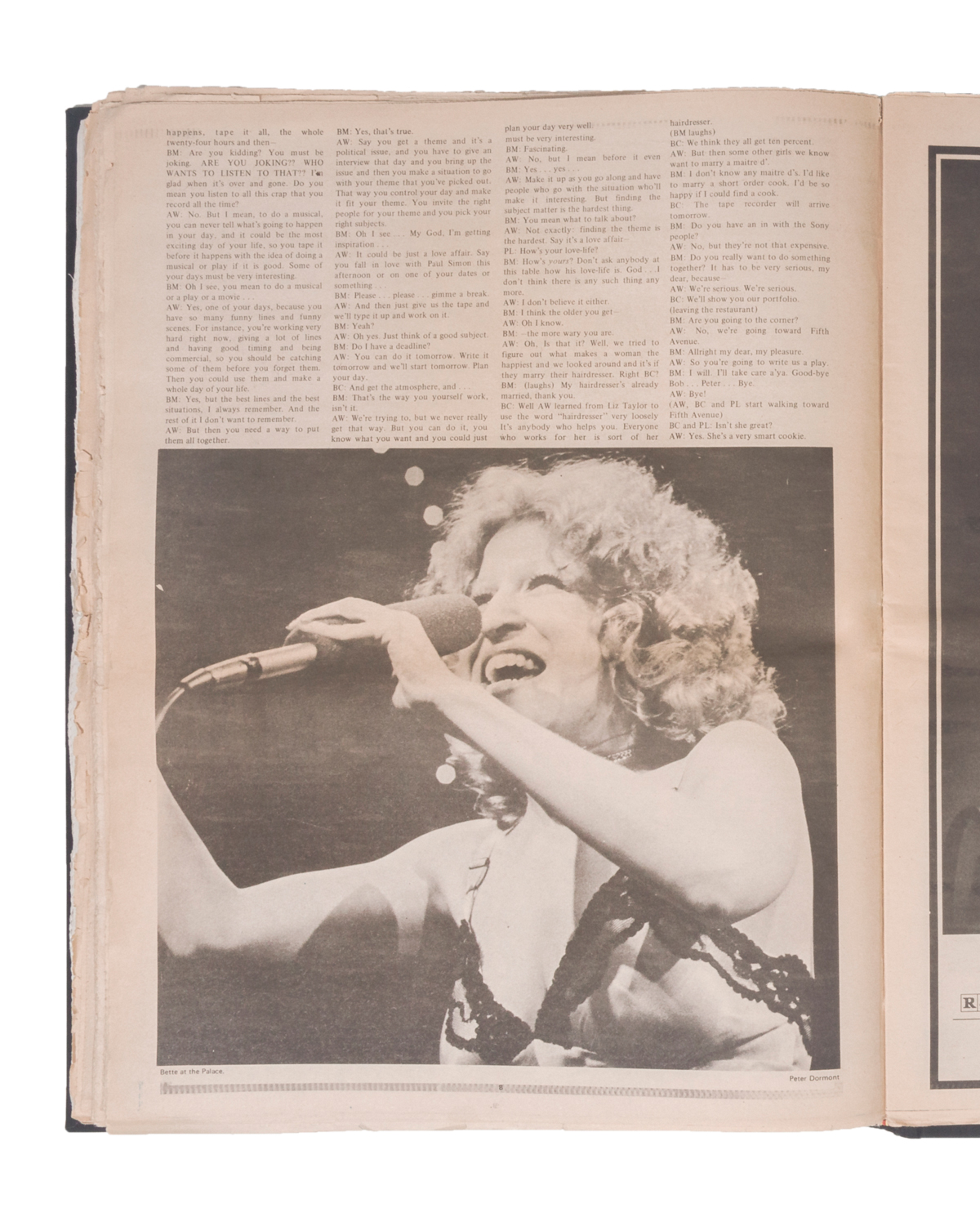
ROBINSON: Did you like doing the Carson shows?
MIDLER: Sometimes. When I was up for them, prepared for them. But insecurity on those things…well, it just grows. If you’re frightened, you’re out of luck, and when I’m frightened I’m paralyzed. The situation really can border on the absurd…sitting there… He and I are really together now though. He asked me to open his show in Vegas for him, and I was pleased to do it for him because he had been very good to me. Really good. The more consistent I became the more he warmed up to me. I liked working for him—he’s very professional. Working for him in Vegas was a trip. To see that kind of professionalism is astonishing. He knows his audiences inside out, they know him, they come to see him do his thing and he does it for them. He’s up every night, he gives the same caliber performance every night.
ROBINSON: Was it difficult for you to perform there?
MIDLER: It’s amazing…you have to see it once before you die, but I’ve seen it. It’s culture shock, it’s not my style.
ROBINSON: A lot of blue hair…?
MIDLER: No…it’s not blue…it’s wigs. Everyone wears wigs. It’s a heavy wig town. I got real good reviews, but I had lots of trouble dealing with the audience. I have to have love from an audience, when I feel warmth, then I’m warm. They just don’t know what to make of me. They didn’t understand what I was.
ROBINSON: Where does all the energy come from? Are you up the minute you hit the stage?
MIDLER: Yes. The people really do that to me. The show in Central Park was unbelievable. It was so much fun. It was better than Carnegie Hall because at Carnegie I was terrified. I have a tape of myself that someone made for me and all I said all night was, “Oh my god. Oh, I’m freaked out…” all night long. I listened to it back and I couldn’t believe it. A second show at Carnegie Hall, if we had done one, would have been sensational—because I was just getting warmed up by the end of that show, I was just getting comfortable.
ROBINSON: Was it Carnegie Hall, or all the people?
MIDLER: It wasn’t the people, it was the big. The people were all right, it was just so huge…it went up, and it was pitch black out there. And then I saw a couple of empty seats and that freaked me out…they were filled eventually…but…the second half was okay, once I got warmed up I was fine. At the Schaefer Festival I was warmed up before I got out there. I wasn’t frightened at all, I was just anxious to get out there and say, “Hello, howya doing, how’s your mother…how’s your father…good, good…” It was just great! When I heard the roar I thought I was in Korea! That concert was the happiest night of my life. I could feel it inside, I could feel the joy…really physically, it was like a big lump in my chest and it was coming out in huge waves. It was wonderful. If I could work every night of my life like that I think I would be just…incredibly happy.
ROBINSON: How did you happen to perform songs like “Leader of the Pack”? It’s terrific…
MIDLER: Well, I always loved the Shangri-Las, they were a symbol to me. I loved the Ronettes too, I love them all. I was immersed in that for a long time. I loved groups. I loved the sound of a lot of voices. “Do You Want to Dance” I started singing because I always loved the original Bobby Freeman track, and I always loved the record, but there was something about that song that I always thought was very sad…when someone like me sings that song it’s sad.
ROBINSON: I think the way you sing it is sexy.
MIDLER: Well, it’s sexy and sad. It’s on two different levels. When I first started singing it I felt very sad, and then I started seeing it as sexy so I sang it sexy for awhile, then I started doing it both. Because that’s the way I am, I’m a sexy lady but I’m sad too. Real sad. Real sad…very sad…
ROBINSON: Do you get annoyed when some people can’t see beyond classifying you as camp…
MIDLER: People just want to put you someplace where they can relate, they want to put a little tag on you so they can understand. That’s okay—that’s for them. But the point is that I am a growing artist and am constantly changing and if they want to come along with me they’ll have a great time because I’m going to have a good time. I’m determined to have a good time. If they want to come, that’s fine. If they don’t want to—if the only want to see camp, then they’re going to be disappointed, because that’s what it is—that’s not all it is.
ROBINSON: Do you think the audience demands and encourages that from you sometimes though…you know, to be funny and outrageous all the time?
MIDLER: No, I don’t think so. I think they want what I give them. There was a time when they did, but they know that we’re moving and that we’re all growing and most of them are pretty good about it.
ROBINSON: Do you want to write songs or to play instruments?
MIDLER: I would like to play, but I can’t see myself writing…I’m learning to play piano…Oh can you see Miss M sitting down at the piano! It’s going to be great.
ROBINSON: Have you seen any videotapes of your performances at all?
MIDLER: Yes, I did. Videotapes of my performances are much more exciting than the TV shows I did. None of the TV shows have really gotten there. I was videotaped at the Baths once and it was unbelievable! I didn’t know who it was! I didn’t have any idea that I looked like that! When I saw the 11 o’clock news also I was shocked. I just laughed and laughed, it was so great. It was great—I mean I knew I was always moving but I had no idea it looked that good. It’s really terrific…I mean it’s really terrific! I would much rather watch myself than listen to myself. The moving is second nature, but the listening…well, that’s the art. And when the art doesn’t come up to your own standard…well, then it’s like…[sighs]
ROBINSON: There’s no one around like you. I mean it’s fun, and entertaining, plus you can sing…there’s really not too much of that happening. It’s an incredible combination…
MIDLER: Well, that’s what it seems like. That’s why I’m happy…I was really happy with that last show. It was an inspiration to keep going on with what we’ve been doing. Not too much talking, just enough, but above all—give them a good time, give them a show. People are really ready for a show.
ROBINSON: There are so many performers who aren’t on positive things, who suffer so much…
MIDLER: There seems to be a lot of pain, that’s why I’m glad I do what I do. At this point in time…in 1972, there is a need for some giggles…because people are…
ROBINSON: Not smiling.
MIDLER: Right.
THIS INTERVIEW ORIGINALLY RAN IN THE OCTOBER 1972 ISSUE OF INTERVIEW.
———
Read more stories from the Celebrating Warhol collection.

